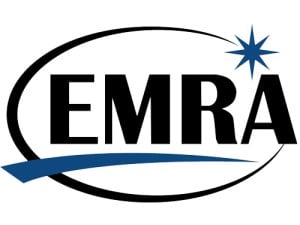Health Policy in the Emergency Department
Katarina Jones, MPH, EMT
MSIII, University of Louisville School of Medicine
EMRA-MSC Legislative Coordinator 2023-2024
“Health policy” is one of those terms that gets thrown around a lot in speeches and interviews, on television and program websites, and by politicians and physicians. And while it affects every single one of us, it can be overwhelming to understand and intimidating to approach. In an attempt to demystify health policy, here is a short primer:
What is health policy? Who is it for? Who can get involved?
Health policy is the structural system that advocates or regulates healthcare for patients, workers and healthcare systems. In some ways, it takes the goals of public health, or health at a population level, and takes actions to make those goals a reality. The topic of the policy can encompass anything that pertains to health(care) including access, quality, price, research, standardization, individualization, innovation, limitations, ethics, consequences and so much more. While this is often in the form of legislation or recommendations at the local, state, national or global level, there are many forms it can take. Anyone can get involved in health policy. However, it is useful for individuals to approach topics for which they have a large academic knowledge or clinical experience. There are numerous government groups and non-profit organizations involved in creating, regulating and advocating for health policy (ex: CDC, FDA, NIH, WHO, CMS…).
Check out the EMRA “Health Policy Basics for Residents and Medical Students”
How does Health policy pertain to Emergency Medicine? What are the big topics in EM?
Health policy affects every speciality of medicine, and EM is often involved because you can get any patient at any time for any reason. Often other speciality policies affect EM patient care. EM take care of patients that need urgent or emergent care, in these situations, it can be difficult to sit down and research what the most recent policy and laws for this situation dictate; therefore, it’s imperative to keep up to date on many areas of health policy specific to your practice location. Because EM is affected by basically every speciality and every population, there isn’t much EM isn’t affected by. For monthly topical EM health policy updates, check out the Legislative Coordinator’s section of the monthly EMRA-MSC Newsletter!
One of the most well-known EM health policies is EMTALA (1986), which mandates that patients arriving at the ED must be medically screened and stabilized, regardless of their ability to pay, before they are discharged or transferred.
How can you get involved?
One of the goals of EMRA-MSC is to create opportunities for medical students to learn about health policy and get involved. Anyone can get involved at many levels of health policy:
- EMRA’s Health Policy Committee
- ERMA’s Health Policy Academy
- EMRA’s Health Policy Fellowship
- Submit a resolution at the EMRA Fall meeting: Contact EMRA-MSC
- EM at the State level: Google *your state* Emergency Medicine Association health advocacy
- AMA’s Guide to Physician Advocacy and Health Care Advocacy
- State Level: Google *your state* Medical Association health advocacy
- State or National legislature: make calls, send letters, write emails
- Ask for systemic change at your medical schools and hospitals
- Campaign, raise money, post on social media… Get loud!
I hope this was a helpful introduction to the wide world of health policy. If you have a healthcare concern, passion or mission you hope to tackle, I encourage you to jump into advocacy at some level. If you are already involved, thank you!
Related Content

Jun 23, 2023
Health Policy in the Emergency Department
“Health policy” is one of those terms that gets thrown around a lot in speeches and interviews, on television and program websites, and by politicians and physicians. And while it affects every single one of us, it can be overwhelming to understand and intimidating to approach. In an attempt to demystify health policy, here is a short primer.

Mar 26, 2021
Consensus Statement on the 2021-2022 Emergency Medicine Residency Application Cycle Part I: Emergency Medicine Rotations and Letters
The Emergency Medicine Residents’ Association (EMRA) and other leading organizations recognize the continuing impact of the COVID-19 pandemic on undergraduate medical education.




